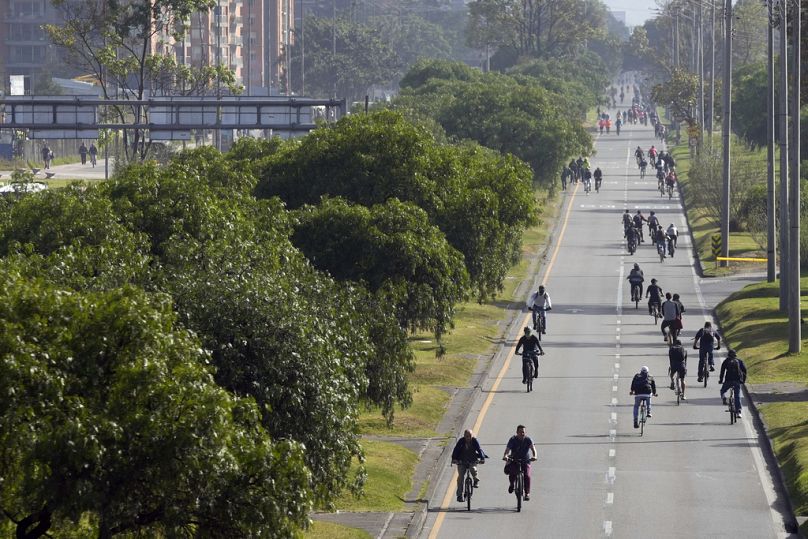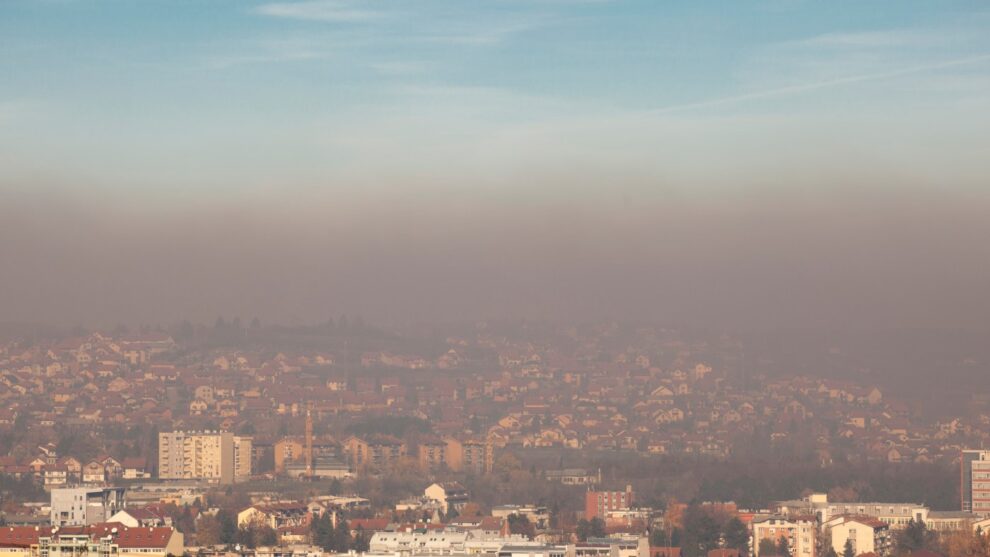G20 countries are failing to integrate air pollution into their climate plans, a new study finds. The authors want that fixed at COP28.
When we think about the dangers of fossil fuels, we tend to imagine the climate consequences on a grand scale from wildfires to flooding.
But there is, of course, a more insidious and direct way that burning coal, oil and gas harms us – air pollution.
“Air pollution sits at the nexus of public health and climate change, yet too many countries are still failing to reap the health benefits of clean air and climate action,” says Nina Renshaw, head of health at the Clean Air Fund.
“This means they are missing out on better air quality, which would dramatically reduce the number of people suffering from heart disease, stroke, lung cancer and asthma.”
All of these conditions are caused or worsened by air pollution, she adds.
To highlight this intersection, the Global Climate and Health Alliance (GCHA) examined which countries include air quality in their national climate plans.
Looking at 170 countries’ nationally determined contributions (NDCs) – their national plans for climate change mitigation – it has produced a revealing clean air scorecard.
Here are some of the key findings – including why low- and middle-income countries are doing better than some of the world’s biggest economies.
Which countries are getting it right on air pollution and climate?

Colombia and Mali top the GCHA’s Clean Air NDC rankings, scoring 12 out of a possible 15 points.
Colombia’s NDCs acknowledge the importance of protecting respiratory health through air quality action. The South American country also exhibits joined-up thinking in stating that policies to monitor cleaner air will come from within the health sector.
It refers to multiple air pollutants – including particulate matter and nitrogen oxides – and sets a goal to cut black carbon by 40 per cent. Colombia identifies the sectors driving air pollution, namely agriculture, electricity generation, industry and transport – with particularly progressive plans for bike sharing.
Mali gets a lot of these things right too. The West African country notes the adverse health impacts of black carbon, and that PM2.5 can lead to cardiovascular and respiratory issues.
Its NDCs also mention a price tag to reduce air and water pollution linked to pesticides. And it states that improvements in air quality could avoid 2.4 million premature deaths by 2030.
Like other countries with high clean air scores, such as Côte d’Ivoire, Nigeria, Pakistan and Togo, air pollution mortality in Mali is above 80 deaths per 100,000 people. . This, GCHA says, shows the need for increased finance to help these nations put their air-purifying plans into action.
Albania and Moldova rank highest for air quality considerations in Europe
Most countries reflecting air quality considerations in their climate plans are in the Global South, according to GCHA. But two countries lead the pack in Europe: Albania and Moldova.
Albania cites the impact of poor air quality on cardiovascular and respiratory conditions, especially in Tirana and other cities.
Its NDCs make reference to the pillars of the EU Green Deal for the Western Balkans, which include climate action alongside fighting air pollution. While sector-specific measures are also mentioned for agriculture and waste.
But other European countries, including the European Union – which submits its NDCs as one bloc – can be found further down the rankings.
Though the EU includes several air pollutants in its commitments, it fails to make the link between air pollution, health and climate action explicit. For this reason, it falls behind higher-scoring G20 countries like Canada and China.
“The Clean Air NDC Scorecard confirms the human cost of delaying the inevitable phase-out of fossil fuels”, said Jess Beagley, policy lead at the GCHA.
“As major global polluters, it is crucial for G20 countries to embed air quality considerations into their NDCs, yet no G20 government even scores half marks – indicative of lack of recognition of the links between climate and air quality, or ambition to take action.”
Indonesia and Saudi Arabia are lowest on the scorecard with one and zero points respectively.
Campaigners demand clean air action at COP28
With 99 per cent of the world’s population breathing air that exceeds the WHO’s guideline safe limits, it’s clear that greater action on clean air is needed.
Campaigners see COP28 – which is designating a day to health for the first time this year – as the perfect time to address this issue.
“This December, the COP28 president has the opportunity to put air pollution firmly on the agenda and to catalyse national commitments and international funding to improve air quality”, says Jeni Miller, executive director of the Global Climate and Health Alliance.
“COP28’s commitment to be the first ‘health COP’ will turn out to be an empty promise if the conference does not deliver substantive progress in tackling air pollution as one of the most tangible issues at the nexus of climate and health.”
More specifically, campaigners want to see air quality commitments woven into key pillars of the negotiations – including the first ever Global Stocktake and the summit’s final deal.
“A full stop to burning fossil fuels is essential to unlock the enormous co-benefits of clean air” adds Beagley.
She also points out that speculative carbon capture technologies will not help people’s health.
Air quality groups have written to COP28 President Dr Al Jaber, calling on him to focus on air pollution during the climate summit.
Source : Euro News















